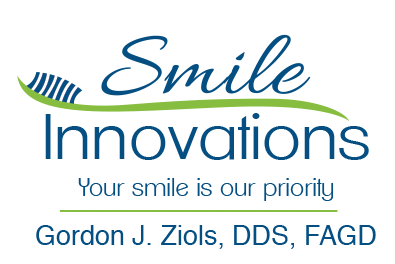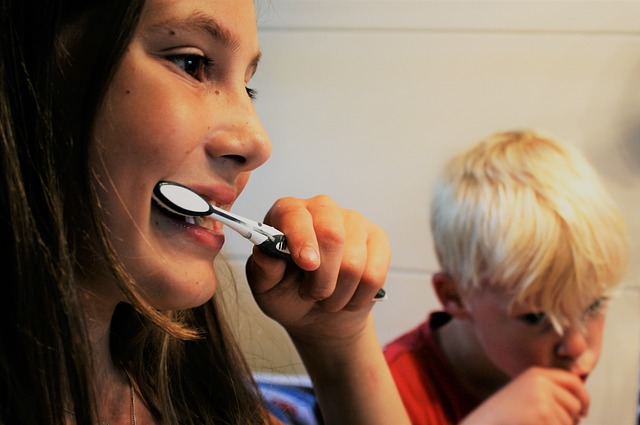Dentist Near Me
It seems like there is a new headline nearly every week
featuring someone who swears their teeth are whiter and brighter due to their
natural home remedy for stain removal. These articles showcase the idea that
whitening can be cheap and easy, if in some cases unpleasant. It can be
tempting to consider trying for brighter, whiter teeth without investing time
and money on in-office or at-home whitening under a dentist’s care. However,
before you pin your hopes on one of these “natural whitening” methods, take a
look at the truth behind some of the recent fads.
Fad 1: Oil Pulling
Oil pulling has been cropping up in headlines for months
with claims of a wide variety of potential health benefits. It is a very old
folk remedy in which a person swishes a tablespoon of edible oil, such as
coconut, sunflower, olive, etc., in their mouth and between teeth for up to 20
minutes daily.
Despite the number of years this practice has existed and
the number of health issues it purports to treat, there is no evidence that oil
pulling whitens teeth or improves health.
Fad 2: Fruits
Due to celebrity endorsement, some people have begun to try
rubbing mashed strawberries on their teeth to try to achieve a whiter smile.
Others are using lemon or orange peels, and still others tout the virtues of
eating pineapple or swishing apple cider vinegar.
However, there is no science to support any of these claims.
In fact, one recent study found that brushing with a mixture of baking soda
(which is known to have whitening effects on teeth) and strawberries did not
whiten teeth. Even worse, the citric acids found in all of these fruits and
vinegars can actually be harmful to the enamel on your teeth.
Fad 3: Hydrogen Peroxide
While it is true that many forms of in-office and
over-the-counter teeth whitening make use of hydrogen peroxide, there is more
to consider before opening a bottle. The hydrogen peroxide used in professional
teeth whitening, whether in-office or at-home, is mixed with other substances
and provided in a form designed for use in teeth whitening.
Simply swishing from a bottle of hydrogen peroxide will have
little or no effect on the whiteness of your teeth, but may cause irritation to
your gums and mouth and can be dangerous if accidentally ingested.
If you want whiter, brighter teeth, there are safe and effective ways to achieve your goal. Talk with our doctor for a recommendation for what kind of whitening will be best for your needs. For more information about whitening, contact our office.
5399 N Milwaukee Ave
Chicago, IL 60630
Phone: 773.763.1000





 Maintaining your gum health is vital to your overall health. When you visit our office for an examination, our trained hygienists perform a periodontal exam. In fact, during your examination, our team is quietly assessing your oral health by performing a number of checks. Here’s what you need to know about periodontal disease.
Maintaining your gum health is vital to your overall health. When you visit our office for an examination, our trained hygienists perform a periodontal exam. In fact, during your examination, our team is quietly assessing your oral health by performing a number of checks. Here’s what you need to know about periodontal disease. Most serious oral health issues can be prevented by maintaining an effective routine of dental hygiene and in-office care. However, you could be at higher risk for some oral illnesses due to hereditary factors. Awareness and proper treatment can help minimize these risks. Here are a few of the most common oral health concerns that are affected by genetics.
Most serious oral health issues can be prevented by maintaining an effective routine of dental hygiene and in-office care. However, you could be at higher risk for some oral illnesses due to hereditary factors. Awareness and proper treatment can help minimize these risks. Here are a few of the most common oral health concerns that are affected by genetics. A canker sore can make eating, drinking, and talking difficult and even painful. Maintaining your oral health by brushing and flossing may also be difficult with a sore in your mouth, but keeping up with your daily oral hygiene routine is an important step in the healing process. We’ve put together a short guide to everything you need to know about canker sores.
A canker sore can make eating, drinking, and talking difficult and even painful. Maintaining your oral health by brushing and flossing may also be difficult with a sore in your mouth, but keeping up with your daily oral hygiene routine is an important step in the healing process. We’ve put together a short guide to everything you need to know about canker sores. At times, life can seem to move quickly. Between work, school, sports, and social events, it can seem there is little time left for you and your health. It’s imperative for a healthy mouth and body to always have your next dental appointment scheduled and to prioritize this care. Our team will work with you to find the most convenient day and time for you. If you need to reschedule, we will do our best to accommodate you. Advanced notice of a change is greatly appreciated, whenever possible. Missed appointments without notice are harmful to our practice, as we’ve reserved your appointment time exclusively for you.
At times, life can seem to move quickly. Between work, school, sports, and social events, it can seem there is little time left for you and your health. It’s imperative for a healthy mouth and body to always have your next dental appointment scheduled and to prioritize this care. Our team will work with you to find the most convenient day and time for you. If you need to reschedule, we will do our best to accommodate you. Advanced notice of a change is greatly appreciated, whenever possible. Missed appointments without notice are harmful to our practice, as we’ve reserved your appointment time exclusively for you. Did you know that tooth decay is the single largest cause of school absences? The longer decay goes untreated, the worse it gets. Not only can this mean costlier expenses for you, but it also jeopardizes your child’s oral health and education. You can help your child have a healthy, happy smile by taking a few steps to defend against tooth decay. Here are three steps you can take at home.
Did you know that tooth decay is the single largest cause of school absences? The longer decay goes untreated, the worse it gets. Not only can this mean costlier expenses for you, but it also jeopardizes your child’s oral health and education. You can help your child have a healthy, happy smile by taking a few steps to defend against tooth decay. Here are three steps you can take at home. Loose teeth, bad breath, and painful, bloody gums – these are among the signs and symptoms of periodontal, or gum, disease. Unfortunately, periodontal disease can also begin without any obvious symptoms. If left undiagnosed or untreated, you could be at risk for irreparable damage to your teeth and gums. The good news is that periodontal disease is preventable. In fact, one of the most effective tools for preventing the disease only takes a minute of your time each day.
Loose teeth, bad breath, and painful, bloody gums – these are among the signs and symptoms of periodontal, or gum, disease. Unfortunately, periodontal disease can also begin without any obvious symptoms. If left undiagnosed or untreated, you could be at risk for irreparable damage to your teeth and gums. The good news is that periodontal disease is preventable. In fact, one of the most effective tools for preventing the disease only takes a minute of your time each day. A canker sore can make eating, drinking, and talking difficult and even painful. Maintaining your oral health by brushing and flossing may also be difficult with a sore in your mouth, but keeping up with your daily oral hygiene routine is an important step in the healing process. We’ve put together a short guide to everything you need to know about canker sores.
A canker sore can make eating, drinking, and talking difficult and even painful. Maintaining your oral health by brushing and flossing may also be difficult with a sore in your mouth, but keeping up with your daily oral hygiene routine is an important step in the healing process. We’ve put together a short guide to everything you need to know about canker sores.